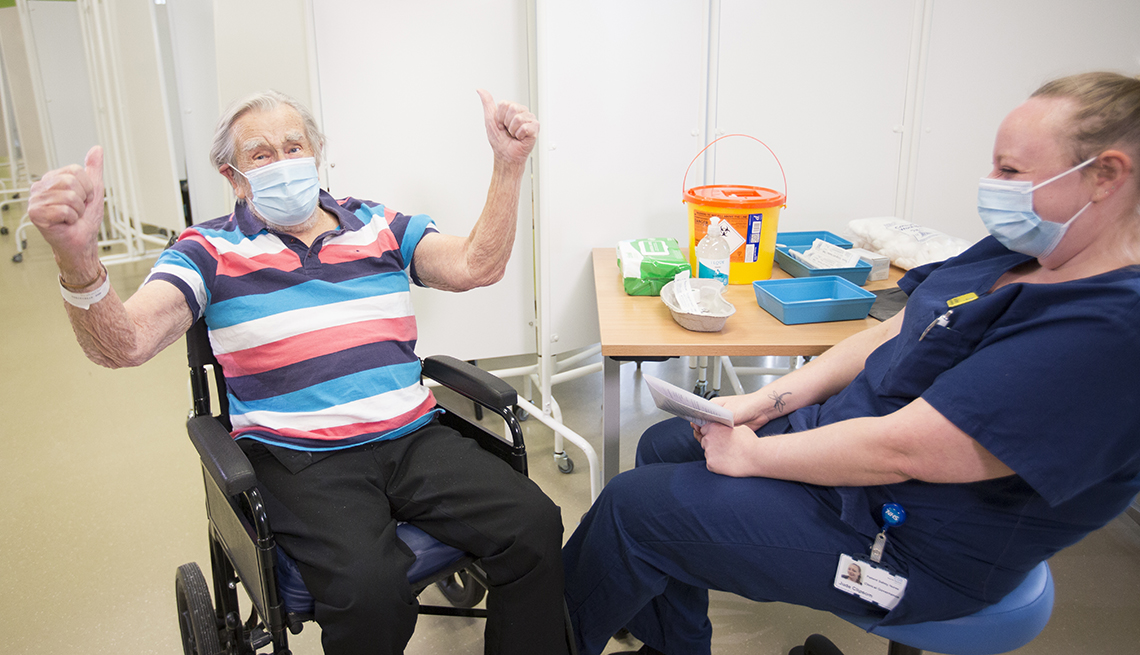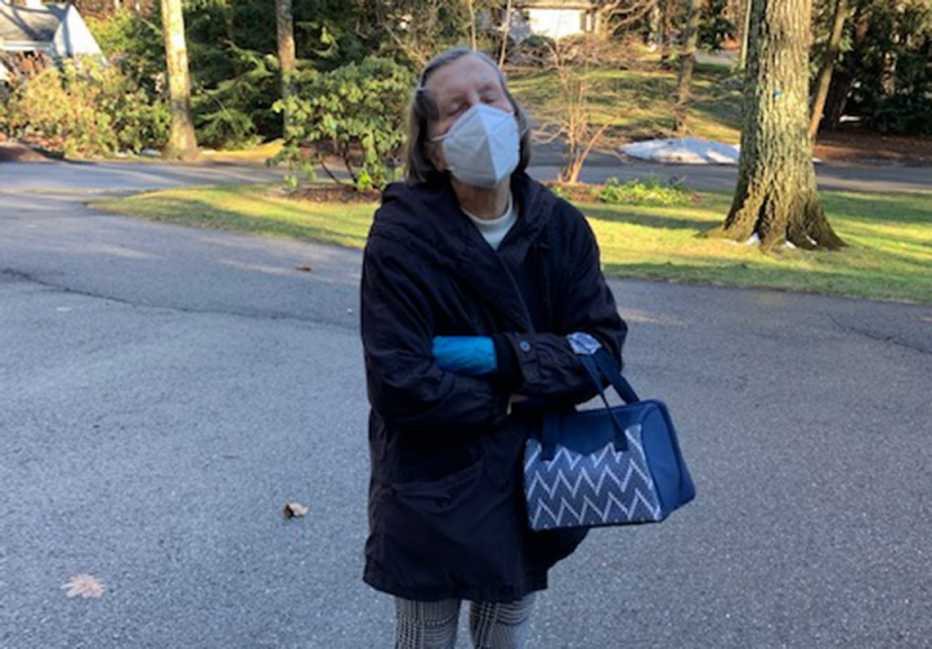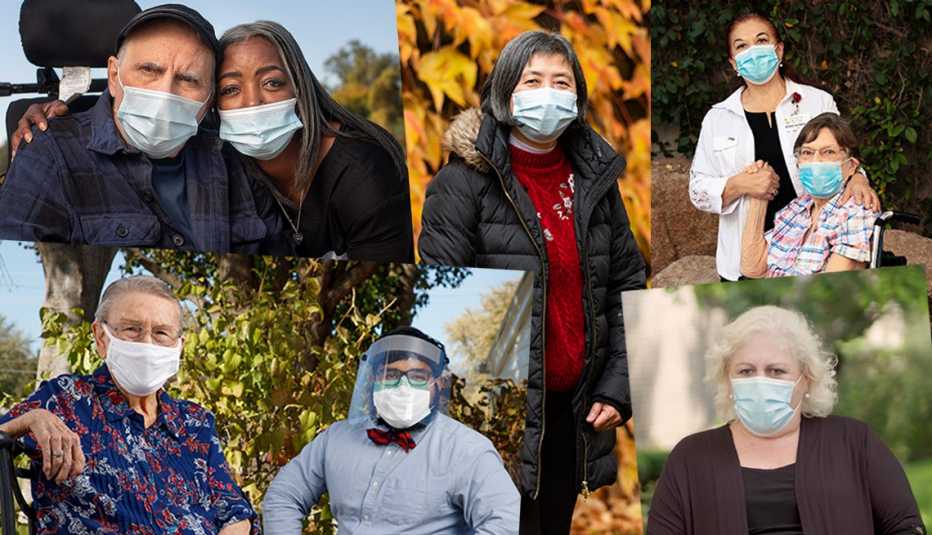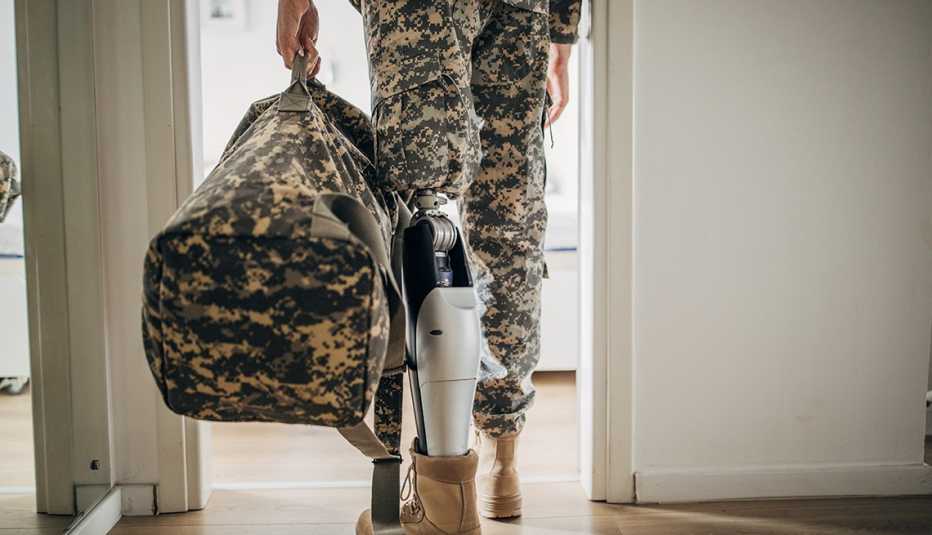AARP Hearing Center
"I got the vaccine!” My mother's voice on the phone sounded pleased and a bit confused. “But I felt sleepy afterward. I took a three-hour nap.”
I was jealous and relieved. Jealous at the thought of a three-hour nap and relieved that my sisters and I could relax just a little. One more booster shot to go!
For older adults and the medically compromised, the vaccine brings a palpable sense of liberation. Watching images on the news of smiling people getting inoculated, flashing the two-fingered “V” for victory, I feel hopeful, despite the fact that the virus continues to burn through our country at an astounding rate, disrupting lives and families and limiting human interaction.
During the pandemic, caregivers have layered on the extra stress of keeping everyone safe from the virus, including themselves. Once minor events, such as going to the grocery store or having a family member relieve you of caregiving for a few precious hours, must now be weighed against the risks. For all of us, it's exhausting. But for many caregivers, it's like an extra set of ankle weights.
Newfound freedom
As a Sacramento, California–based restaurant reviewer and mother, Kate Washington, 48, is also a caregiver for her husband, Brad, 50, a cancer survivor who is immune-suppressed. “When I heard that he was eligible to get the vaccine, it was like letting out a breath I didn't know I was holding,” she says. “It will mean he can get out more, our kids can see a few friends and, selfishly, I won't be doing all the grocery shopping.” Washington, who has written a memoir about her unexpected caregiving journey called Already Toast: Caregiving and Burnout in America, describes her thought process as they all went into lockdown in 2020. “It activated all my old reflexes on how to be an advocate and support a person during a health crisis,” she says. “I found myself mentally rehearsing exactly who I'd call and what I'd do if Brad got exposed or sick. It didn't hit me until several weeks into the pandemic that I could get sick myself, and I had no plan for that!”






































































